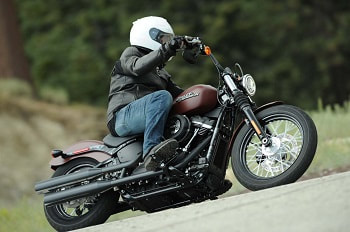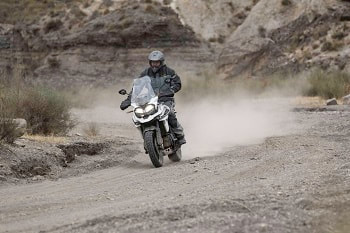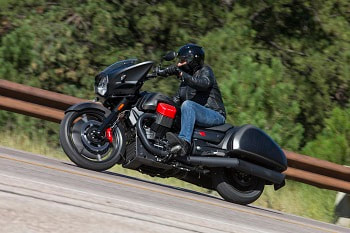Motorbike Insurance
Cruise the streets and save on motorbike insurance with peace of mind that you’re protected
Updated 5 January 2021
There’s no need to overpay on motorbike insurance. Many insurers don’t digitise their policy quotes, so it’s hard to compare without phoning up a bunch of insurers. We’ve done the work to get some sample quotes for two motorbikes to give you an idea. Be aware that auto-renewing your motorbike insurance policy can mean you pay more year after year. To get the best price, spend a few minutes every year before your existing policy renews to get a few quotes. This lets you see if what you’re paying is reasonable.
Our motorbike insurance guide covers:
Know this first: We understand every rider is different. Whether you’ve owned a motorbike for 50 years or just bought a 50CC scooter, our guide covers everything you need to know. It’s not just price you are comparing – excess levels and claim cover are outlined below. Remember – the cheapest or most expensive option isn’t necessarily the best – being under-insured or over-insured are both problematic. Our focus is on helping you buy the right insurance protection at the best price.
In this guide, we have looked at motorbike insurance from AA Insurance, Protecta Insurance, State, AMI, Tower, Swann Insurance, and Kiwibike. Specialist providers, for example Classic Cover, is an example of an insurer who caters exclusively for a particular motorbike class.
Our motorbike insurance guide covers:
- Cost of insuring a motorbike
- Motorbike insurance basics
- Best motorbike insurance - our market survey
- Motorbike insurance FAQs
Know this first: We understand every rider is different. Whether you’ve owned a motorbike for 50 years or just bought a 50CC scooter, our guide covers everything you need to know. It’s not just price you are comparing – excess levels and claim cover are outlined below. Remember – the cheapest or most expensive option isn’t necessarily the best – being under-insured or over-insured are both problematic. Our focus is on helping you buy the right insurance protection at the best price.
In this guide, we have looked at motorbike insurance from AA Insurance, Protecta Insurance, State, AMI, Tower, Swann Insurance, and Kiwibike. Specialist providers, for example Classic Cover, is an example of an insurer who caters exclusively for a particular motorbike class.
Motorcycle insurance, like car insurance, has three options:
- Third-party: This covers you for damage done to another person and/or their vehicle. Your motorbike is not covered.
- Third-party, fire, and theft: This covers you for everything in third-party, as well as cover when your bike is stolen, or damaged by fire
- Comprehensive: Fully: This covers everything above, as well as accidental damage and vandalism, and will pay for the repairs or replacement. You’ll decide if you want to be paid the market value or an agreed value when you buy the policy.
Will my motorbike be cheap or expensive to insure?
Different insurers have their own risk assessment and consider modifications, engine size and other risk factors differently. To help you understand where your motorbike sits in the cost-to-insure hierarchy, we’ve created this list below:
1. Moped and scooter (cheapest to insure)
A moped or scooter is usually cheap to buy, and are popular with under 25s in particular. The younger you are, the more expensive the policy as insurers see you ask a higher risk. However, given mopeds and scooters don’t have modifications or large engines, they tend to be the cheapest to insure.
2. Sports bike
Sports bikes are seen as higher risk as they’re designed for speed and style, and therefore can be more expensive to insure. For this reason, getting multiple quotes is important to find the best deal.
3. Classic motorbike
If you own a classic bike, it’s likely you care for it and rarely use it. Drivers tend to be older and more careful. However, replacement and market values can be high so getting a range of quotes to find the best insurance is essential.
4. Off-road motorbike
Understandably, off-road motorbikes are high risk and insurance high-cost. If your model is modified, you’ll pay more.
5. Cruiser motorbike (often the most expensive to insure)
In many instances, cruisers are big, heavy and have after-factory modifications. This combination will mean you’ll pay a lot for insurance.
1. Moped and scooter (cheapest to insure)
A moped or scooter is usually cheap to buy, and are popular with under 25s in particular. The younger you are, the more expensive the policy as insurers see you ask a higher risk. However, given mopeds and scooters don’t have modifications or large engines, they tend to be the cheapest to insure.
2. Sports bike
Sports bikes are seen as higher risk as they’re designed for speed and style, and therefore can be more expensive to insure. For this reason, getting multiple quotes is important to find the best deal.
3. Classic motorbike
If you own a classic bike, it’s likely you care for it and rarely use it. Drivers tend to be older and more careful. However, replacement and market values can be high so getting a range of quotes to find the best insurance is essential.
4. Off-road motorbike
Understandably, off-road motorbikes are high risk and insurance high-cost. If your model is modified, you’ll pay more.
5. Cruiser motorbike (often the most expensive to insure)
In many instances, cruisers are big, heavy and have after-factory modifications. This combination will mean you’ll pay a lot for insurance.
What motorbike insurance is best?
Who offers the best insurance comes down to your model, age and riding history – the only way to know is to compare insurers by getting quotes. The more you have, the better decision you’ll make.
How much is motorbike insurance?
It ranges – a cruise or classic motorbike with a market value of $10,000 can cost over $1,000 a year to insure. A 50cc moped is much less – around $300 (if you’re a 25-year-old driver). How much you pay depends on your model, age and riding history – the only way to know is to compare insurers by getting quotes. The excess will also influence what you pay.
Can I avoid paying the excess if I need to claim?
Yes - some motorbike insurance policies let you avoid paying the excess if another vehicle causes a covered loss (i.e. damage to your motorbike) and you can prove they are completely at fault, and you can provide the correct registration number of their vehicle, or information to positively identify the driver, and assist the insurer to pursue the person who caused the accident. If you can't do that, then you'll pay the excess even if you weren't at fault. Other covered events like theft or an accident that doesn't involve any other vehicle will incur the excess you agreed to in your policy.
What kind of motorbikes are covered by insurance?
Different insurance companies offer different cover, but for the most part, their motorbike insurance policies will cover:
- Quad bikes
- Scooters
- Mopeds
- Classic bikes
- Electric bikes
- Modified bikes
What does motorbike insurance cover, and who offers the best prices?
It’s a reasonable question; does comprehensive cover my helmet and lost keys, or is it for damage only? From the polices we looked at, we concluded that the policies varied based on the insurer.
We sampled the two most popular new-registration bikes (Suzuki GSX150 and Kawasaki Ninja 650) sourced from Driven.co.nz to get quotes from the seven main motorbike insurers. Are results are below:
- AA Motorbike insurance:
We sampled the two most popular new-registration bikes (Suzuki GSX150 and Kawasaki Ninja 650) sourced from Driven.co.nz to get quotes from the seven main motorbike insurers. Are results are below:
Quote Sample 1:
Vehicle: 2017 Suzuki GSX150, parked overnight in a garage
No aftermarket accessories or modifications
Cover: Fully comprehensive
Car insurance quotes for a 35 yo male rider, no accident history and holding a full licence since 2005
Vehicle: 2017 Suzuki GSX150, parked overnight in a garage
No aftermarket accessories or modifications
Cover: Fully comprehensive
Car insurance quotes for a 35 yo male rider, no accident history and holding a full licence since 2005
- Drives approx 2,000 KM/year
- Private use
- Primary rider holds a full licence
- Primary rider is a 40yo male
- Comprehensive insurance quoted
- $2,000 agreed value
Quote Sample 2:
Vehicle: Kawasaki Ninja 650
Cover: Fully comprehensive
Car insurance quotes for a 35 yo male rider, no accident history and holding a full licence since 2005
Table being updated with the latest quotes
Vehicle: Kawasaki Ninja 650
Cover: Fully comprehensive
Car insurance quotes for a 35 yo male rider, no accident history and holding a full licence since 2005
- Drives approx 2,000 KM/year
- Private use
- Primary rider holds a full licence
- Primary rider is a 25yo male
- Comprehensive insurance quoted
- $7.000 insured value
Table being updated with the latest quotes
Motorbike Insurance - Frequently Asked Questions
How much you'll pay and what your policy covers will vary between insurer. Our frequently asked questions helps you understand what to watch out for when buying or renewing a policy.
What affects the cost of motorbike insurance?A number of factors contribute to how much you’ll pay. These include:
|
What additional cover is available?In addition to fully comprehensive insurance, you may be offered a range of extras including breakdown cover, lost keys and wrong fuel. What these add-ons cost will vary, and you’ll need to weigh up whether or not they’re worth it. If you’re concerned about breakdown cover, which is perhaps the most urgent need for a motorbike owner, AA membership covers you and may work out to be cheaper than a breakdown cover add-on.
|
Can I use my bike for business purposes as well as personal use?You can, but you’ll need to tell your insurer. And the insurance you’ll pay will be a lot higher. If you have an accident while using the bike for work, i.e. delivering food, then you could be uninsured. Full disclosure is always best when it comes to insurance.
|
Can someone else ride my bike and be covered by the insurance policy?Yes – this is usually permitted. However, if you need to claim, there may be a higher excess if the person driving is under 25 years of age. You won’t be able to claim successfully if the rider didn’t have a licence, was disqualified, under the influence or other prohibited reasons.
|
If my bike is written off, can I get a replacement?This depends on the policy, but most will pay you either an agreed value (i.e. what you think the motorbike is worth and would cost to replace) or market value (which varies between insurers as they determine what it’s worth). To make sure you’re not under-insured or over-insured, make sure you are aware of the real replacement cost of your motorbike every year when you renew your insurance.
|
How many motorbikes and motorbike licence holders are on New Zealand roads?There are almost 100,000 motorcycles on the road based on government data released in 2015, and around 500,000 motorcycle licence holders. This indicates there are more than 5 times as many motorcycle licence holders as there are motorcycles in New Zealand. With so many motorbikes, the insurance market is competitive but you’ll need to compare providers to get the best deal.
|
What modifications are excluded from cover?It depends on the policy, but usually accessories and modifications not covered include customised paintwork, performance enhancing modifications, modified frames or sub frames, a sidecar and any custom built motorbike. Insurers won't cover these items as they are difficult to value should repairs be required due to an incident. If you have installed fairings, these (usually) won't be covered either.
|
Claiming on Motorbike Insurance - Your Rights if Your Claim is Rejected
If an accident happens or disaster strikes and you need to claim, the process is reasonably standard and you'll have your motorbike repaired, replaced or a cash payment deposited for the market value or agreed value.
However, if you believe you have a genuine claim that your insurer refuses to pay out, re-read the terms and conditions of your policy again and cross-check it to the reason(s) your insurer has given for denying the claim. If you have been rejected and you think it's unfair, appeal it by doing the following:
However, if you believe you have a genuine claim that your insurer refuses to pay out, re-read the terms and conditions of your policy again and cross-check it to the reason(s) your insurer has given for denying the claim. If you have been rejected and you think it's unfair, appeal it by doing the following:
- Call the insurer and explain why your claim meets the T&Cs of the policy you bought.
- If they don't agree, you can lodge a complaint with the Insurance & Financial Services Ombudsman Scheme which resolves disagreements between customers and their insurers.
- Their free-of-charge service will make the final decision about your claim and order the insurer to pay out if they find in your favour.
- If your insurer isn't a member, you can complain to Financial Services Complaint Ltd who follow a similar process.
Related guides:
Disclaimer: In this guide, we have looked at motorbike insurance from AA Insurance, Protecta Insurance, State, AMI, Tower, Swann Insurance, and Kiwibike. Specialist providers, for example Classic Cover, is an example of an insurer who caters exclusively for a particular motorbike class, and have no been quote compared. Other insurers may offer motorbike insurance, and if your needs are specific, an insurance broker may be able to assist.
Disclaimer: In this guide, we have looked at motorbike insurance from AA Insurance, Protecta Insurance, State, AMI, Tower, Swann Insurance, and Kiwibike. Specialist providers, for example Classic Cover, is an example of an insurer who caters exclusively for a particular motorbike class, and have no been quote compared. Other insurers may offer motorbike insurance, and if your needs are specific, an insurance broker may be able to assist.















